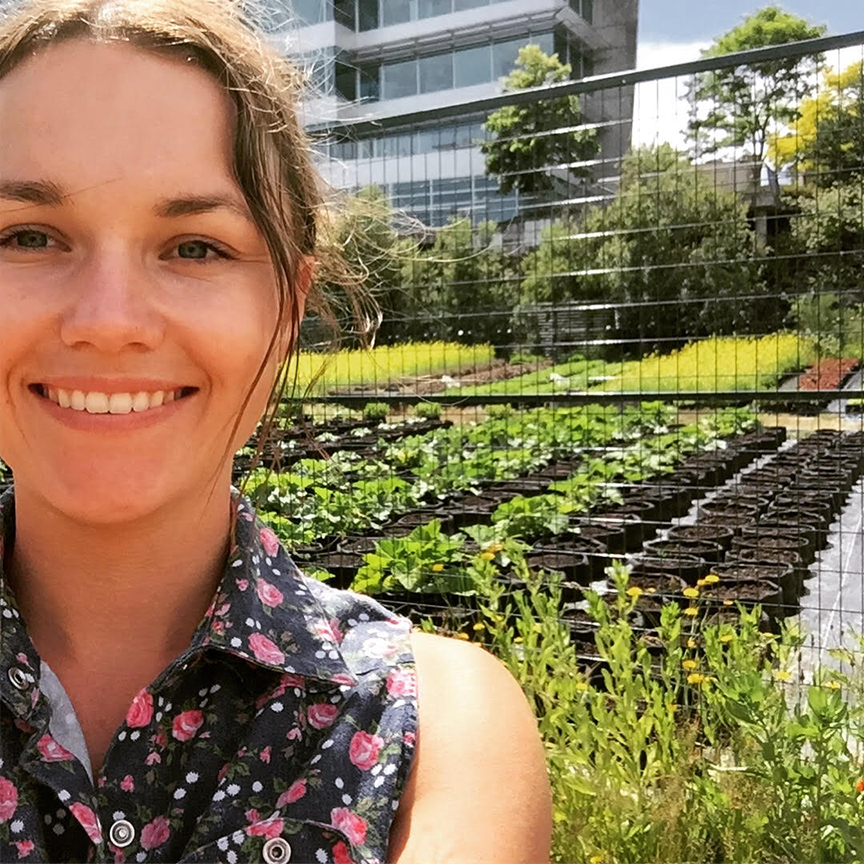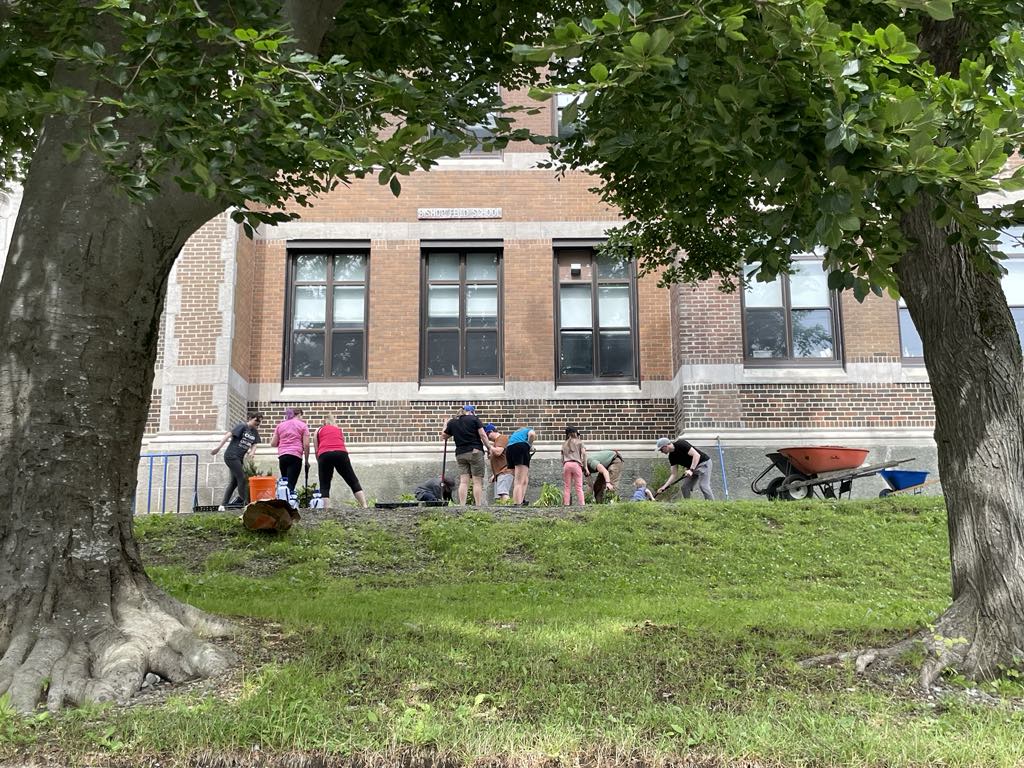Jess Schellenberg is a student at the University of Victoria, where she is completing a double major in Environmental Studies and Political Science, with a minor in Education. Even with a full course load on her plate, she still finds the time to lead the Meal Exchange chapter on campus, which for the past year has focused on making farm to school connections to bring more local foods to campus. She is able to do this through the support of the University’s Sustainability Office where she works closely with the Farm to School Regional Lead on developing her role as the Good Food Campus Coordinator running the Good Food Calculator on campus. The calculator, an in-depth supply chain auditing tool, has allowed her to better understand what percentage of community based foods are being purchased in order to brainstorm viable solutions on how to increase that number.
One solution is to develop farm to campus connections. Jess has been working to bring healthy, local and sustainable, food to campus by collaborating with TOPSOIL, a local farming company in Victoria. TOPSOIL values innovation in the food system by building capacity in urban spaces so that they are seen as viable local food solutions. Not only do they focus on developing connections to local food systems, but also value environmental sustainability and community. Jess has spent time developing a relationship with TOPSOIL, starting off as a volunteer and now as their production assistant. Building trust with both campus administration and local farms is an important part of bringing healthy, local and sustainable foods to campus, and indeed, to other campuses as well. The work she is doing will act as a model for future students interested in building local food connections on campus.
Jess also recognizes that when speaking about local food systems it is important to acknowledge the far reaching impact of the colonial food system. She and her colleagues at UVIC are working with the Tsartlip First Nation on ‘Project Reclaim’, an effort to decolonize their community by removing invasive species. Jess acknowledges the importance of initiatives such as this, as she sees food as an axis for change which touches on many aspects of life; politics, social justice, animal welfare, ecological processes, human health and community resiliency.
It is important to share in stories, such as Jess’ so students can continue to develop community based connections on campus. Jess recognizes that university campuses are a hub for education and innovation, and as such have the opportunity to play a role in creating a more transparent, healthy and sustainable food system. By shifting their purchasing to support local and community based foods, campuses across Canada can have system wise impact on the food industry.
Jess, a young scholar and activist has learned, through experience, that direct action which is backed up by prudent and practical research can create change within powerful institutions. She is empowered and inspired with this knowledge as she begins and continues her journey for sustainable change in the world.





